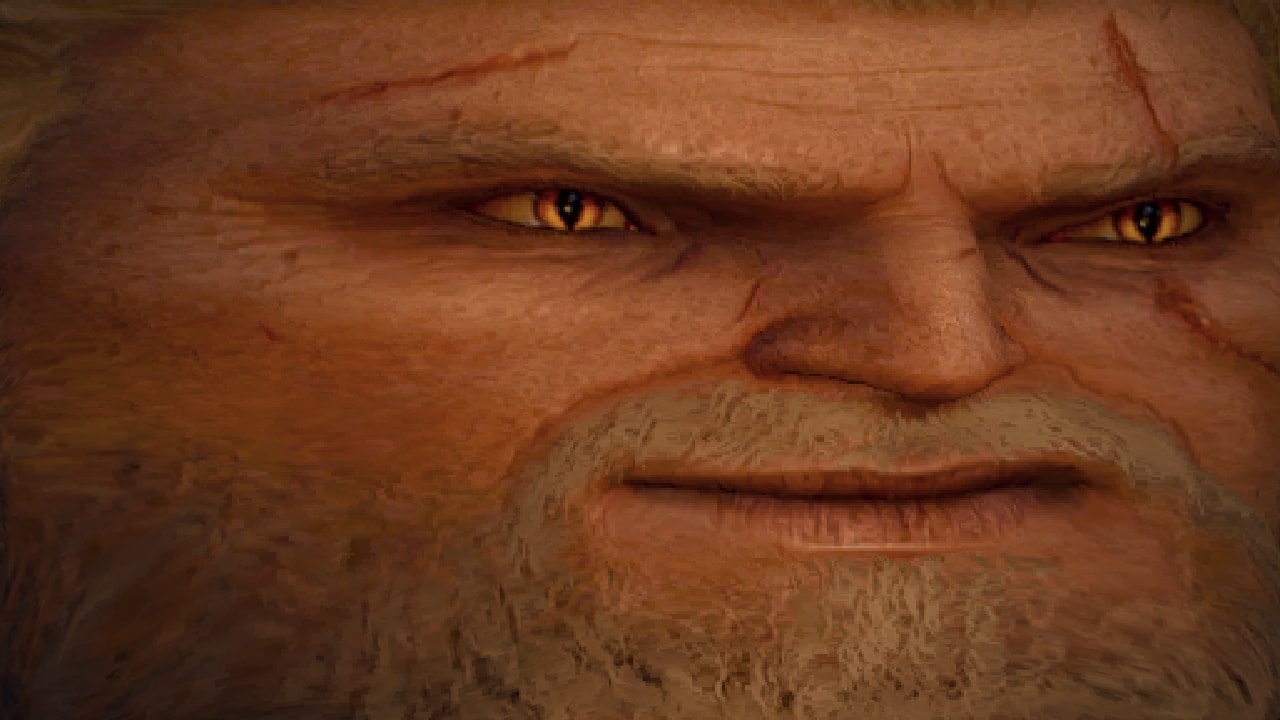
Lego Horizon Adventures Review
It took me a while to figure Lego Horizon Adventures out. It’s the action game equivalent of watching the movie version of a book you like: It hits the major points, takes some liberties with characters and events, and then wraps everything up with a shiny bow in an abridged length. And like so many Hollywood adaptations, it handles the source material well without ever hitting the same heights. After spending 21 hours reaching 100% completion, I enjoyed nearly everything about its beautiful world and rich customization options, but predictable level design, and a lack of things to do beyond the modest yet well-paced campaign made it feel like I was building a Lego set while missing a page or two from the instruction manual.
Lego Horizon Adventures is a playful retelling of 2017’s Horizon Zero Dawn in the body of a typical Lego co-op action game. While it may not go into the depths of that story when it comes to the world or Aloy’s origins, the broad strokes paint an entertainingly familiar picture for existing fans that’s still simple enough for newcomers to enjoy as well.
The 12-hour campaign took me across recognizable regions like the foliage-filled forest of the Sacred Lands, the frigid Snowchant Mountains, and the scorching hot Sunfall Desert. Each mission is filled with swaths of machines and cultists to overcome, chests filled with Studs (basically Lego money) to collect, objects to build or break, and plenty of charming character moments to keep the journey enjoyable. Those moments are often brief, but plenty of them had me chuckling from start to finish.
Throughout Aloy’s Journey, she’s joined by an eclectic cast of playable allies: Rost, her mentor and father figure; Varl, a young Nora hunter looking to prove himself; Teersa, the village elder who’s never short on quips; and Erend, a lovable brute with a big hammer. It’s great that original voice actors Ashly Burch, John Hopkins, John Macmillan, and nearly everyone else you encounter are back to reprise their roles, and the lighthearted tone of this outing gives them all room to experiment and have fun with characters I otherwise know well in some amusing ways.
The one unfortunate exception to this is Sylens. He is back too, this time with a love of DJ’ing as he assists Aloy and friends from afar, but with a new voice actor after the tragic passing of Lance Reddick last year. Sylens has always been a reserved character, but I wish his sharp tongue had been showcased more in the many scenes with him in Lego Horizon Adventures, and the new performance from Tim Russ can often feel flat or clash with the energy and playfulness of the other characters. However, I will say that the decision to make him a DJ is inspired, and a fitting match for the zany quirks that everyone else has, like Varl’s overprotective love of his comic books or Erend’s obsession with Donuts.
Master Builder
The world of Horizon looks great in Lego form. Each level is filled with charm, constructed out of smart recreations of familiar structures like dilapidated buildings to climb around or destroyed sections of road mixed with things like a traditional Lego police station. These additions can distract from the Horizon flavor a little, but aren’t harmful in their own right as the environments still nail the look and feel overall.
That’s especially true of the soundtrack. The music is fantastic, pulling some great choices from Horizon Zero Dawn’s score and adding its own flair with some EDM and pop-inspired tracks. One standout was called Post-Apocalyptic Dance Party, which would feel right at home with songs like Everything is Awesome from The Lego Movie.
Unfortunately, the design of the levels themselves frequently boil down to just a few key components: linear exploration sections that often hide a few chests full of either Studs or the occasional limited-use rare weapon or gadget, arenas to fight numerous machines and cultists in, and then sometimes a platforming area with simple jumps and climbing paths as you chase a Tallneck to end of the stage. Special Cauldron levels can also have slightly trickier platforming sections that require you to use either some form of shock item or weapon to power movable objects or open doors. While each stage is different, it became clear after just a few hours that the formula is too predictable.
There was also a noticeable lack of things to do besides platform and fight – no puzzles to solve, and no sneakily hidden secrets to obtain things that many fans of Lego games have come to expect. For example, red bricks are relegated to just unlocking a few costumes and customization items instead of various cheats as usual, like the stud multiplier or 8-bit music modifier. It’s fine that they serve a different purpose here, but when I know they are usually used for so much more, the unavoidable comparisons come across as lacking.
Piece of Resistance
Customization picks up some of the slack, and was one of my favorite elements of Lego Horizon Adventures. There are over 100 gold and red bricks to collect for unlockables like costumes and town alterations. You obtain a small portion of them by completing levels, but most are earned by completing tasks on a community board in the hub area, Mother’s Heart. The community board encourages you to change your outfits regularly, asking you to do things like dress as various Ninjago characters before defeating enemies with specific elemental attacks, or build certain items in town that let you catch a fish or play fetch with a dog. You can even radically change how Mother’s Heart looks, whether that’s adding hot dog carts, dropping dragons onto rooftops, or dressing all the townsfolk up like ice cream cones.
In addition to those cosmetic choices, you also have two simple but helpful skill tree options to take advantage of; one is a general skill tree that benefits your whole team, while the other is a set of character-specific trees. The general tree offers benefits like experience bonuses, extra healing, and extending the duration of enemies being frozen, shocked, or on fire. Meanwhile, the character-specific trees offer advantages that increase maximum health, weapon damage, or other unique bonuses. These are all unlocked simply by leveling up after earning experience from defeated enemies, with combat standing as a simple but satisfying exercise in picking off the specific body parts of your machine adversaries. By using Aloy’s Focus to target these body parts, you can change how fights play by doing things like removing the horns of a Broadhead so it hurts itself whenever it collides with objects in the environment. Skills can also come in handy when taking down bosses and stronger enemies, which provide more of a challenge than I was expecting from the Lego series.
Typically, dying in Lego games costs you some Studs and then puts you right back into the battle – but in Lego Horizon Adventures, death instead sends you back to your previous checkpoint, which is usually the start of an area. I’m torn on whether or not this system is better than the original, as I liked that it left more money in my pocket for customization, but that comes at the cost of having to grab chests and build environmental objects again as I retrace my steps after a death. Either way, the good news is that experience earned and progress in various community board challenges is retained, so dying was still only ever a minor annoyance.
And if it’s more obnoxious to you, Lego Horizon Adventures has five difficulty options to choose from. The lowest setting has enemies only dealing one or fewer hearts worth of damage, and things scale up well to the highest option, where machines like Corruptors or Thunderjaws could deal five or more hearts per hit, taking me down in as little as one or two swings. I almost always prefer to play on the hardest difficulty setting available, but the tough part about doing so here is the lack of mechanics for dodging attacks. You’ll occasionally get access to the Rush Boots gadget, which allows you to zip around the environment in short bursts, but that brings me to another pain point I have mixed feelings about: the unpredictability of item drops.
In Horizon Zero Dawn, equipping weapons with the correct elemental type can make a difficult fight much more manageable. While Lego Horizon Adventures adapts that same idea in the form of limited-use rare weapons and gadgets, which ones you get out of chests or from enemy drops is random for the most part. There are some great options like homing weapons or gravity bombs that pull enemies together before exploding. Weaker machines like broadheads and grazers still have tanks on their back that are vulnerable to one-hit kills with elemental attacks, too, but whether or not you’re lucky enough to have it is another story. On the one hand, I like the chaotic nature of using whatever I can find mid-fight. On the other, it would have been nice to be able to select specific rare weapons to some degree, especially because certain challenges require certain weapon types to complete them.
It’s cool that you can at least guarantee you get some item drops by breaking off the back of a Shell-Walker, but you also never know what’s inside or which battles they will appear in. Thankfully, there are a few surefire ways to get special items, like a merchant that typically shows up at the midpoint of each stage with a trio of chests containing three random items or by investing in weapon-based abilities in the skill tree. These can help by making specific items drop more often, as well as one skill that gives you a random rare weapon and gadget at the start of each level. These options help, but they still aren’t a perfect solution. Granted, all of the rare weapons you could find are both powerful and fun to use, so there’s no going wrong in a general sense, but thinning out the herd with a precise element can go a long way when five or more enemies spawn into an ongoing battle.






